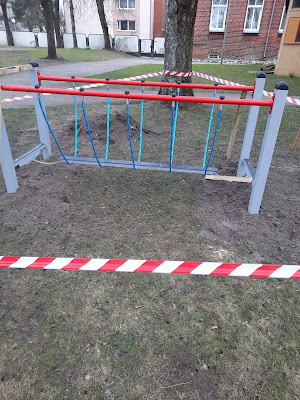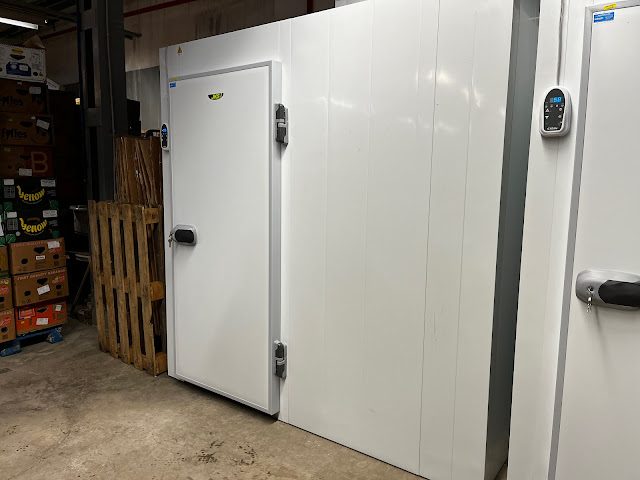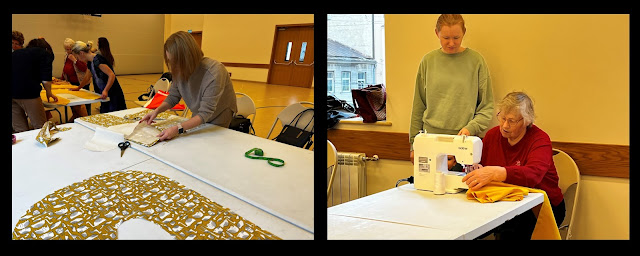The Blau's Humanitarian Mission Serving in Europe North Area 2020 to 2022
Humanitarian: Update on Orhei, Moldova Social Center: Open House June 15, 2023
Humanitarian-Leipaja, Latvia
Even though our mission is finished we still get updates on projects we have worked with.
Humanitarian--Riga, Latvia---Freezer, Refrigerator, and Shelves
During the holiday season there are boxes in which people may donate non-perishable food items. The Latvian people have been very generous this year.
There is also another collection during Easter time.
These items then are taken to a warehouse and sorted by volunteers.
The food is distributed all over the country to those in need. They also distribute to Elderly Homes, Disabled Homes, and Children's Homes.
Samaritan has 2 vans that go out 3 times a week to various locations.
The Church of Jesus Christ of Latter-day Saints donated 2 large shelving units, 1 Freezer, and 1 Refrigerator.
Samaritan hopes to use the Refrigerator and Freezer for milk and meat products.
The warehouse is already using the shelves for purchased food from donors.
Riga at Christmas
Humanitarian--Senior Housing in Liepaja, Latvia
They have a small one room unit and a sink in the kitchen. They have a small seperate toilet, but they share a common shower. They are not provided with anything in their apartments and have to buy or bring their own items, even their own beds.
The Church of Jesus Christ of Latter-day Saints provided 10 rental units with single beds and mattresses, hotplates, and kettles.
The sister missionaries and the Relief Society President of the Liepaja Branch delivered the goods to the Senior Home.
This project was found by the Relief Society President in Liepaja. The branch is planning on singing carols at the home during the Christmas Season.
Humanitarian--Red Cross in Lithuania--Border Camps for Refugees
The Church of Jesus Christ of Latter-day Saints donated needed underwear and shoes to the Refugee camps along the border of Lithuania and Belarus.
Camp for Refugees: Pabradė
There are 5 camps open for
Refugees in Lithuania: Medininkai, Pabrade, Rukla, Vilniaus, Kybartai.
After the Medininkai facility is
closed, irregular migrants will be accommodated at four remaining registration
centres across Lithuania: in Pabradė, Rukla, Vilnius, and Kybartai.
The five centres currently house
around 1,400 irregular migrants in total. (2021)
Almost 4,200 irregular migrants crossed into Lithuania from Belarus last year.
All irregular migrants in
Lithuania were moved out of tent camps October 1, 2022.
In Pabrade, where we visited, are 400 refugees. Refugees came from Iraq, Camaroon, Africa, and other parts of Africa, and other countries. They were refugees without papers. Their papers were taken from them either before they entered Belarus or at the border of Belarus. Pabrade is about 9 kilometers from the Belarus border and about 1 hour drive north to Vilnius.
Red Cross works with the refugees
trying to preserve their dignity, help with clothing and psychological needs. Miglė
Miliauskaitė, the Red Cross representative
drove us to the camp. We met one of the psychologists who had worked at the
camp for 1 year.
She talked about the food, which
is not very good. They are not allowed to cook their own food so a van comes to
the camp with prepared food.
There are separate buildings, one for men, and one for women, fenced and guarded for the prisoners. There are about 10 prisoners.
There are two container housing
areas. One is fenced with barb wire. Those that live there are able to leave
their area and walk around the perimeter for about 2 hours.
The others can leave the complex
during the day with a pass, but have to return at a certain time.
There is a brick housing building that are for women similar to the one below in this picture.
We were not allowed to take photos
of this government facility. We were honored to be allowed in the complex to
assess the nature of the camps for our humanitarian work.
We saw a large flat area that was
used for tents that are no longer there. There are no children is camp, they
have moved with their families to another camp.
Pabrade is home to single
refugees, or married refugees without children.
These are similar to the containers that the refugee lives in.
The Red Cross has offices that are containers in the complex.
Because these refugees have no papers they are only allowed to stay
in the camp for a year. They are supposed to be sent back the country.
Loop-hole. It is illegal for immigrants to be admitted into the
country without legal papers. So, if they don’t have legal papers, they are not
allowed to leave the country in which they had been living, which is in
Lithuania in these camps.
We heard that some refugees try to make it to Germany, and if they
succeed and are caught then they are sent back to Lithuania or their own
country. Germany is an asylum seeker country, and assess the situation. Those
that are caught will either be sent back to their original country, which they
are refused because they sought asylum elsewhere, and then they are sent back
to Lithuania where they have been refugees at the camps. It is a vicious cycle.
Some refugees are able to have success stories and get help
through Red Cross or the government to move on.
Humanitarian--Liepaja Children's Social Care Center- Pillows for Handicap
A Handicap Home in Liepaja, Latvia will receive 40 pillows made by the Latvia District Relief Society of the Church of Jesus Christ of Latter-day Saints.
About 20 sisters in Riga, Latvia started sewing the pillows on November 12, 2022. In Liepaja, Latvia, a 3-hour drive west of Riga, the sisters will meet for the sewing project on November 26, 2022.
The pillows will be distributed to the Children's Social Care Center in December.
Even the Sister Missionaries in Latvia were involved.
Humanitarian--Update on Ukraine Refugees in Bulgaria--CARITAS Organization
Mothers can do anything
(a few months in the life of a Ukrainian mother with
many children in Bulgaria)
Tell us how you came to Bulgaria.
We did not plan to come to Bulgaria. You could even say that it was by
accident. We already thought of where to go. We decided that because the
language in Bulgaria was close to Ukrainian, it would be easier for the child's
education to adapt. On the way we met a guy who brought us by car to Ruse and
then we came to Sofia. And so we stayed here.
What made you want to leave?
The war, the explosions, it was scary. It's very important for a child
to study, to continue his life normally.
How did you find out about Caritas?
I called some friends, asked where we could get help and they directed
me to Caritas Sofia.
How do you feel in Bulgaria?
Good. But I worry about my relatives in Ukraine. If I wasn't so worried
about them, it would be fine.
What challenges did you face at the beginning?
Housing first, work, medical care. My eldest daughter needed a dentist,
I had to pay 320 euros. With the school we solved the issue very quickly. On
March 12 we came, on March 16 we already met the teachers and the coach at the
sports school. Our acquaintance whom we met on the way helped us a lot. He was
with us everywhere. He knew Bulgarian, Russian and English very well.
How did you find a job?
I applied at Lidl. They arranged a number of issues very quickly -
medical care, Bulgarian courses, employment contract, everything. But the job
itself was difficult. My hands hurt a lot at the beginning, especially at
night. But not anymore, I'm used to it now. There are electric trolleys and I
learned to work with them. There was training and I managed to pass the exam.
Now I work mainly in the bakery.
All the children are now at school in a sports school, only the youngest
doesn't go to kindergarten yet. We are sorting that out now.
How has Caritas helped you?
Caritas Sofia helped me a lot. I was very worried about how I was going
to manage to pay both rent and bills, especially in winter, so now we save a
lot of everything we get from Caritas, to manage after the three-month program.
My oldest daughter is 19 years old and helps me a lot. If it wasn't for her, it
would be very difficult for me. It is impossible for a single mother. My salary
is 1500 BGN, so the help from Caritas is very useful for us.
What would you wish for?
I only wish for one thing - to have peace. No war. When the information
about the terrible violence in Bucha started coming in, I packed my bags and we
left. I didn't want to risk my children's lives. I didn't know how things would
turn out next. Whether the troops would stop or continue to take over
territories. In the first days there were explosions in the village next to us
- Byala Cherkva, 1-2 kilometers from our home. It was very scary. Every time I
had to go down into the shelter with my children, I faced the uncertainty of
whether a bomb fell on us they would find us in those shelters or not.
How did you manage to organize the departure?
My husband is in government service. The state arranged bus transport to
a border town and from there everyone got as far as they could. We travelled
through Romania by Bulgarian bus and got to the border in Ruse. From there we
were picked up by car - the Bulgarian who helped us. It was a great happiness
for us.
Two weeks
after the start of the war in Ukraine, the family decided to leave. They took a
bus to another city in Ukraine, then through Poland, they reached Hungary,
where the family remained for a month. During the stay in Hungary, the kids
managed to calm down from the stress from the sudden evacuation of their home
and the change of the environment. Meanwhile, the priest communicated with the
Bulgarian Orthodox church inquiring about accommodation and a potential job. He
received a positive answer and the family commenced their journey to Bulgaria.
They have been in the summer house of the St. Mina monastery for over a month
now. Alexey is still looking for a more
stable job and hopes that soon the kids will be enrolled in school and in
kindergarten.
The premises,
where they live at the moment, are not suitable for the winter. Thus, at the
end of the summer, they will have to look for a new place to live. At this
point, he found out about Caritas Sofia’s housing programme. He found out about
Caritas Sofia from the groups in the social media. After visiting the St. Anna
Refugee and Migrant Centre, he is thankful for the care and the support he
receives. He shares his happiness for the help his family receives, and for the
help that is available for other refugees from Ukraine.
To benefit
from housing support at the end of the summer when the kids start school and
kindergarten and the summer house at the monastery is no longer suitable for
the family he sees as a great opportunity. He also realized that he can receive
assistance with the process of enrolling his kids to school and kindergarten.
There still a long way ahead in the journey of settling in, but the family
feels supported by the Caritas Sofia team in accessing basic services and help.
As a servant
of the Orthodox church, Alexey wishes
for a unity among the
people and he hopes
soon to be able to return with the whole family to their own home in Ukraine.
Voucher coverage in June 2022
The Church of Jesus Christ of Latter-day Saints has helped with donations for Caritas to destribute food vouchers, medical vouchers, housing and utilities. Caritas has many other donors who are part of this refugee project in Bulgaria.-
Social Center February 2020 The Church of Jesus Christ of Latter-Day Saints provided materials for the center to be finished. The top flo...
-
The governmental Housing for Senior Citizens is located in Liepaja very close to the main part of the city. This housing is provided by the ...
-
Even though our mission is finished we still get updates on projects we have worked with. Newspaper Article: The social care center recei...


.PNG)









.JPG)






















